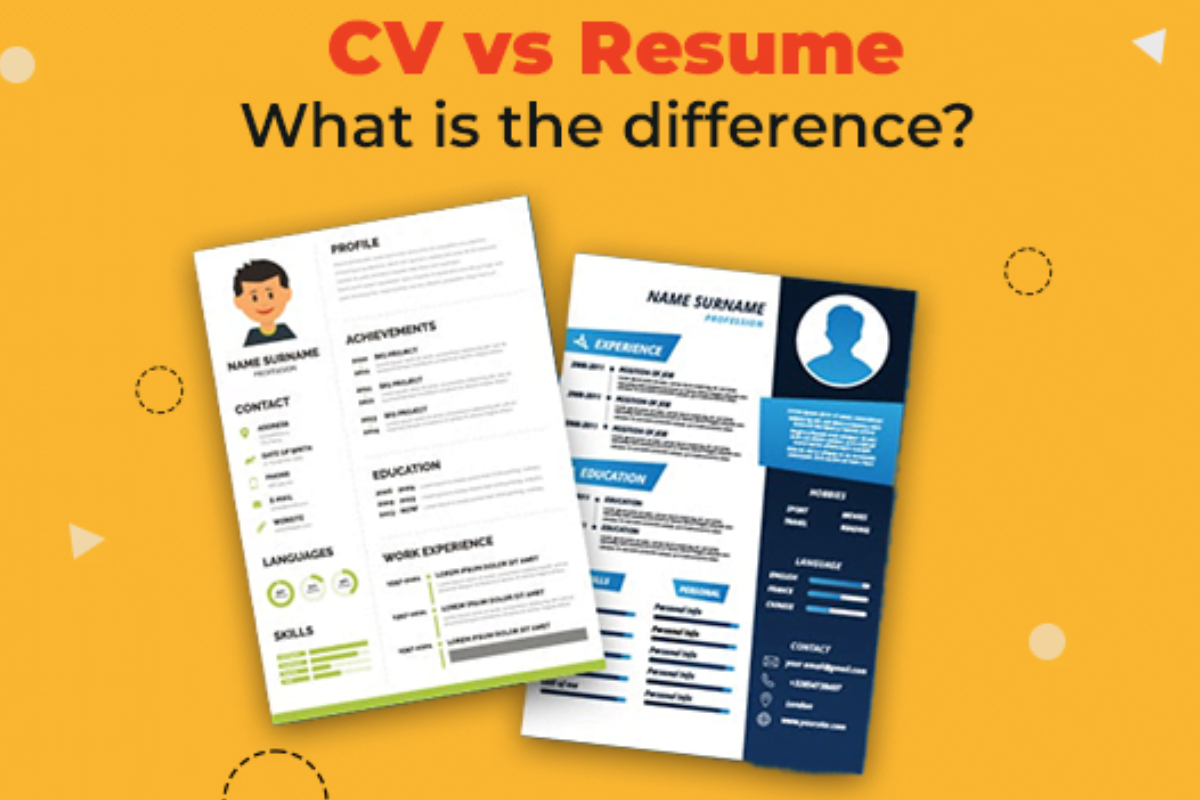- Resumes and CVs both formal documents used in the recruitment process.
- Many still confused due to similarities.
- Resumes for job applications; CVs for academic and research positions.
Resumes and CVs are both formal documents that are required during the recruiting process. People are still confused about the two, despite their differences.
Today, we’ll look at the distinctions between resumes and CVs so you can better understand them and choose the best one for you.
What is Resume?
A resume provides a quick but accurate summary of a candidate’s background and credentials.
It is often a 1-2 page document designed to distinguish the applicant from the crowd.
It’s meant to be as brief as possible.
Resumes place a greater emphasis on work experience and job skills than on a candidate’s degree.
That is, unless the candidate’s recent graduate resume’s education section mentions a lack of work experience.
In addition, most resume formats are informal and creative when compared to the standard academic CV.
What should be included in a Resume?
Following should be included in a resume:
- Contact details
- Synopsis
- Education and Training Skills
- Certifications and awards
- Any projects undertaken
- Volunteer work
- Language(s) spoken
What is CV?
A curriculum vitae, or resume, is a multi-page document that contains detailed information about a person’s career experience, education, achievements, presentations, honours and awards, research, and other accomplishments.
A curriculum vitae, or academic CV, is used to apply for graduate school, Ph.D. programmes, and academic positions.
In Latin, curriculum vitae means “Life Course.” The CV serves its intended purpose.
What should be included in a CV?
Following should be included in a cv:
- Contact details
- Personal Statement or objective
- Education
- Work Experience
- Publications
- Skills
- Accolades and prizes
- Certifications
- Fellowships and grants
- Research initiatives
- Memberships
- Dissertations
- Conferences
Difference between Resume and CV:
The length of a CV differs from that of a resume. The term curriculum vitae, or CV, is Latin for “the course of one’s life,” and résumé is French for “to summarize.”
A curriculum vitae (CV) is a comprehensive document that includes a person’s previous schooling, career experience, accomplishments, and abilities. A resume, on the other hand, is a concise document that summarizes a person’s education, professional history, skill set, and previous employment experiences.
A CV can be 2 to 20 pages lengthy, whereas a resume is only 1 or 2 pages long (at most).
A CV emphasizes academic material while a resume focuses on non-academic information and highlights significant qualities and competencies that are relevant to the employment.
To stay informed about current events, please like our Facebook page https://www.facebook.com/BOLUrduNews/.
Follow us on Twitter https://twitter.com/bolnewsurdu01 and stay updated with the latest news.
Subscribe to our YouTube channel https://bit.ly/3Tv8a3P to watch news from Pakistan and around the world.
[embedpost slug=”/crack-the-solution-for-the-alphabetic-equation-in-7-seconds-left/”]





















